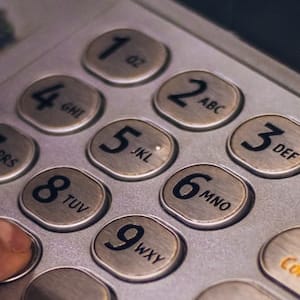throw money away: Idiom Meaning and Origin
What does ‘throw money away’ mean?
The idiom "throw money away" means to spend money on something that is essentially wasteful or unnecessary, resulting in a loss of money or resources.
This phrase suggests a careless or frivolous attitude towards money, implying that the person is not concerned about the value or usefulness of what they are spending their money on.

Idiom Explorer
The idiom "waste not, want not" means that if you don't waste anything, you won't lack anything. It emphasizes the importance of being frugal and not being wasteful in order to avoid future wants or needs.
An idiom that means someone is very poor and has no money.
The idiom "tuppence worth" means expressing one's opinion or viewpoint, typically when it is not considered particularly valuable or important.
The idiom "tuppence" refers to something that is considered of little or no value. It is often used to express a lack of interest or importance in a particular topic or situation.
The idiom "throw the baby out with the bathwater" means to discard something valuable or useful along with things that are not. It warns against the risk of making hasty or indiscriminate decisions that result in unnecessary loss.
The idiom "throw stones" means to criticize or blame someone, often without considering one's own faults or mistakes
The idiom "throw out" means to dispose of something, to get rid of it. It can also mean to eject or expel someone from a place or a group.
The idiom "throw one's toys out of the pram" means to react in an excessively angry or childish manner, often in response to a minor inconvenience or disappointment.
The idiom "throw off balance" means to make someone feel uncertain or confused, disrupting their usual state of composure or stability.
The idiom "throw off" means to remove or get rid of something or someone, often in a sudden or forceful manner. It can also refer to causing someone to lose their balance or stability.
Uncovering Extravagance: Dissecting the Origins
Throwing away money is a phrase commonly used in the United States to express the act of wasting or squandering money without any return or benefit. This idiom conveys a sense of frivolous or careless behavior towards one's financial resources.
The origin of this idiom can be traced back to the early 20th century when money became highly valued in American society. During the Great Depression, a period marked by poverty and economic turmoil, throwing away money symbolized recklessness and disregard for its value in a time of scarcity.
Over time, the idiom "throwing away money" has become ingrained in American language and culture. It is used in various contexts to criticize or question poor financial decisions or wasteful spending habits. Whether it's extravagant shopping sprees or ill-advised investments, this idiom serves as a reminder of the consequences of such actions and the importance of making wise financial choices.
Another facet of this idiom is its association with privilege and abundance. It highlights the idea that some individuals have so much wealth and affluence that they can casually and carelessly dispose of money without considering its value. This usage often carries a tone of resentment or envy towards those who can throw away money without repercussions.
It's important to note that the idiom "throwing away money" is not exclusively used in negative contexts. In some cases, it can be used humorously or playfully to describe situations where money is spent on something enjoyable or entertaining, even if it may not be the most practical or financially prudent choice. This usage conveys a sense of indulgence or spontaneity in spending, signaling an acceptance of the temporary enjoyment it brings.
The metaphorical implications of throwing away money are worth exploring. By equating money with a physical object that can be discarded, this idiom suggests that money holds tangible value. It urges individuals to handle money with care and consideration. Additionally, it highlights the paradox of being able to casually dispose of money while acknowledging its significance and worth.
While the idiom "throwing away money" captures the essence of waste and carelessness in financial matters, it also raises broader questions about the role of money in society, the impact of economic inequality, and the complex relationship between wealth and personal responsibility. It encourages reflection on the choices individuals make with their financial resources and the underlying motivations behind those decisions.
In a society driven by consumerism and wealth accumulation, the idiom "throwing away money" serves as a reminder to think critically about the consequences of our spending habits and the value we assign to money. It asks us to consider whether our financial choices align with our long-term goals and priorities and urges us to evaluate the true worth of our investments and expenditures.
Overall, the idiom "throwing away money" encapsulates the multifaceted nature of our relationship with money and the implications of our financial decisions. It challenges us to navigate the delicate balance between indulgence and prudence, while also highlighting broader societal issues surrounding wealth, privilege, and the distribution of resources. As we encounter this idiom in everyday conversations, it invites us to explore the intricacies of our financial choices and the deeper meanings behind our actions.
Example usage
Examples of how the idiom "throw money away" can be used in a sentence:
- He always buys expensive shoes and never takes care of them, it's like he's throwing money away.
- I can't believe she hired such an inefficient contractor for her renovation. It's like she's throwing money away.
- If you keep spending all your earnings on unnecessary things, you're just throwing money away.
More "Waste" idioms



